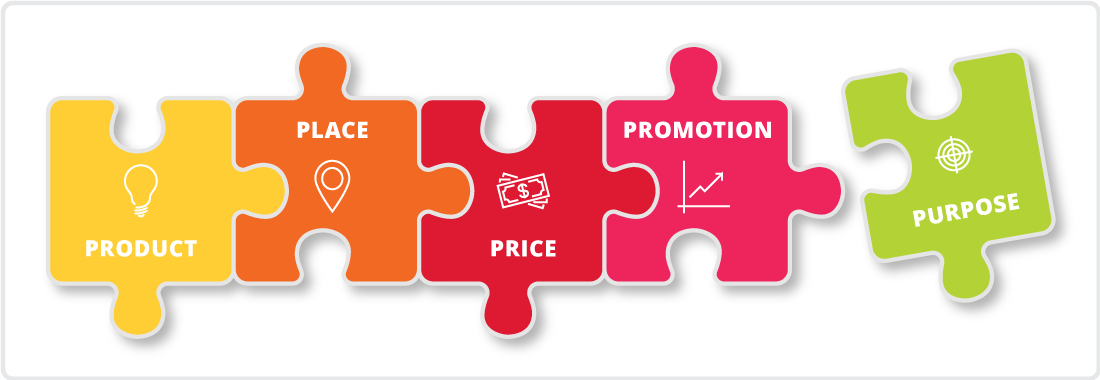By: Tony Winslow, Marketing Manager at Cengage
“The 4 Ps of marketing”—product, price, place and promotion strategy—have been the foundations of industry thinking and introductory Marketing courses for the past sixty years. Other Ps, such as people and processes, have tried to make their way into the mix, but the original 4 have remained as foundations.
I propose a new foundational P – a P that transcends, impacts and sometimes uproots the original 4 Ps. It goes beyond customer-centricity, cause-related marketing, corporate social responsibility and echoing cultural sentiments to fit in and make you look good. The 5th P of Marketing is purpose.
Purpose: It’s no longer optional for marketers
Over 90% of millennial consumers will “switch from one brand to another because it champions a cause.” Fuse Marketing says that Gen Z has a “purpose filter” to choose which companies they support. Consumers expect brands to speak out against injustice, encourage mindful habits and participate with us in creating change.
To quote Seth Godin, “Marketing is the most powerful force available to people who want to make change.” I believe in a much more powerful force, but in the context of business impact on social change, this statement is not hyperbole. In a world wrecked by pandemic, racial injustice, human trafficking etc., marketers have a responsibility to use their power to change beliefs for the good of others.
How is purpose manifested?
If your purpose is simply an addendum to your mission statement or donating money and tweeting about it, you’re doing it wrong. Purpose is not reactive to what’s going on in the world—it’s about guiding beliefs that shape your entire organization. For some organizations, purpose is embedded within the business model (what Cengage authors refer to as a “Strategic Philanthropy Approach”):
- Warby Parker: “Buy a pair, give a pair.”
- Carabello Coffee: “Coffee and compassion in tandem”
- Aruna Project: “Shop for her freedom”
For other organizations, purpose is ingrained within the culture and values statements, so product strategy and marketing messaging reflect that purpose:
- P&G “improves more consumers’ lives in small but meaningful ways each day”
- REI wants you to #OptOutside
- Peloton has shifted from product-focused promotion to focusing on their member community
- Dove wants to overcome #beautybias
- Coca-Cola wants to “refresh the world and make a difference”
Whatever your purpose is, your brand say must match your brand do. Authenticity is required to create consumer trust. When Coke put a social distancing message in Times Square, their message was genuine and consistent with the purpose-driven story they’ve been telling us. McDonalds, however, faced backlash when separating their golden arches.
Purpose requires a shift in mindset
My challenge to marketers, instructors and students: inject purpose into your marketing plans to impact the rest of the 4 Ps. Is the purpose of your organization defined? What organizational core competencies support your purpose and how can you hone those to make a greater impact on the world?
Let’s make purpose stick as the new foundational P of marketing thinking.
Want to browse course materials and other useful content for your Marketing class?


